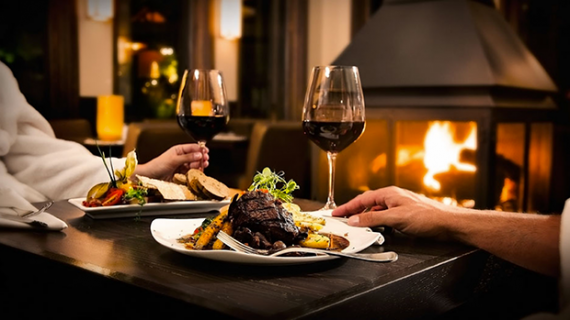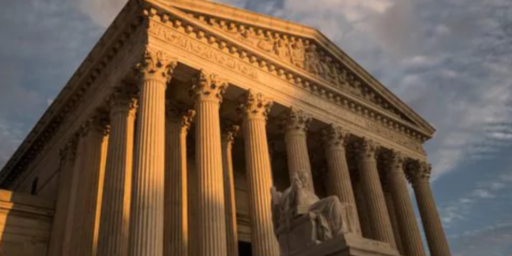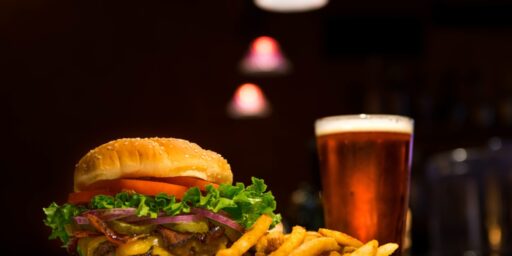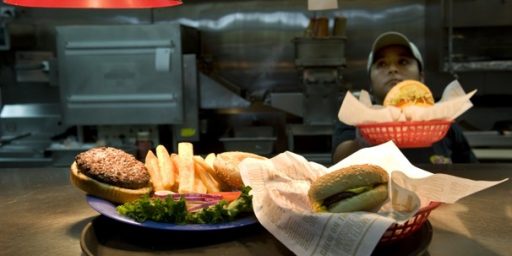Restaurant Reservation Scalping Is A Thing
A new app allows customers to cut the restaurant reservation line. What could go wrong?
A new app allows customers to cut the restaurant reservation line in San Francisco. What could go wrong?
ValleyWag (“Restaurant Reservation Scalping Site Is Everything Wrong with SF“):
There are two things startups shouldn’t fuck with in San Francisco. One is parking, and the other is restaurants. San Francisco is, after all, a city of foodies. Techies write bots to score competitive reservations. Foodies stand two hours in the rain waiting for day-old New York bagels. Now a startup is drawing fire for trying to capitalize off that love.
ReservationHop bills itself as a service that “[makes] reservations at the hottest restaurants in advance so you don’t have to.” The service scrapes advance reservation systems to fill up its inventory and sells them back to users for “as little as $5.” In other words, they’re scalping dinner reservations.
So far, so good, right? Restaurants are making it a pain to get a reservation, so a third party is making it easier for a small fee. For those who, say, have jobs and can’t stand in line or play games with restaurant reservation systems all day, this is great. And, really, how is this different from, say, Open Table?
The startup operates in such an unofficial gray area, they even inform customers “After payment, we’ll give you the name to use when you arrive at the restaurant.”
Okay, so that’s a skosh dishonest. But who does it hurt, really?
Of course, the service is effectively capturing money away from restaurants—one of the most famously risky businesses out there.
But restaurants don’t charge for reservations. And they’re not offering a fast lane. So how is ReservationHop taking money from them?
And the situation is made worse by the fact they are making empty reservations to sell, creating situations in which Reservation Hop’s unsold “inventory” could result in empty tables.
Oh. Yes, this is a problem. While there are always customers who make reservations and cancel at the last minute—someone has gotten ill, traffic is horrible, or the hassle of getting there is otherwise too much when it comes time to actually go—they’re presumably actually intending to go when they make them. And, if it’s just a few people an evening, the restaurant can likely fill the gaps with walk-ins. Here, a third party is scarfing up scads of spots—quite possibly a large portion of the restaurant’s availabilities—at no cost and selling those it can. Those it doesn’t? Well, why should they care?
ValleyWag commenters suggest that San Francisco restaurants start requiring identification in order to utilize a reservation, thus negating the advantage of the fake name and quickly ruining ReservationHop’s business model. I suspect few customers would complain.







Obviously by requiring ID they are trying to disenfranchise poor and minority dinners who may not have an ID. They are racists.
My wife notes that the other standard response to situations like this is to require a refundable deposit at reservation time, generally a credit card. If you cancel the reservation at least X days in advance, you get your deposit refunded.
There might even be a way, under that system, for everyone to come out ahead here. RestaurantHop patrons would pay more — but they probably should, given the market value of what they’re getting. The restaurants would be no worse off, and potentially better off if they aren’t selling out but make some money from cancelled reservations.
At a restaurant that doesn’t do reservations, the market for this kind of service doesn’t exist.
It’s these situations that make me think that markets don’t necessarily want to be “free;” they just want to exist. The restaurant won’t sell their availabilities….therefore someone else must.
If anything ever was a navel gazing ‘first world problem’….
Big Mac…Drive up window…
Or the restaurants should start charging to make reservations and require ID. If anyone should make money off this system, it should be the restaurant.
@Grumpy Realist: Right. But the problem here is that at lot of the trendier restaurants make it next to impossible to get a reservation. The service here isn’t the reservation itself but dealing with the aggravation. I’m okay with that. The problem is that the second order effect of the business model screws the restaurant out of customers.
@James Joyner:
This sounds like that old Yogi Berra line about how nobody goes to that restaurant any more because it’s too crowded.
@Bob Beller:
Yes, quite clearly this is related to voting rights.
@DrDaveT: I don’t care enough about food to go along with the shenanigans. But, for example, there’s this trendy bar in Nashville that friends of mine there took me to. Their shtick is that they don’t take reservations and you get to wait in their tiny waiting area until they seat you. The waiting area gets packed, even though—at least on the night we went—the interior area has plenty of seating. But people are excited enough about the crafty drinks inside that they’re willing to put up with the nonsense.
Aside from the company I was with, I’d rather drink a nice bourbon, neat, in the comfort of my own home. But there are people who love being seen or being able to brag about being at the trendy place and are willing to put up with the silliness. This service allows those who want the experience minus the silliness to pay more.
You mean like “Beans and Cornbread”?
https://www.youtube.com/watch?v=fM9jT2eM6KQ
@James Joyner:
As two examples, Volt in Fredrick. MD is almost impossible to get a reservation on the weekend. I assume that the restaurant holds out a large number of tables for regulars or to give to concierges at hotels. Cityzen and Blue Buck Tavern restaurant in downtown DC requires a credit card number of reserve a table and will charge more than $100 a person for a no show.
There are also the odd places like the original Ray’s the Steaks where one showed up at 4:00 PM and put your name on a paper list and then waited in line for your name to be called. The wait in line ensures that all of the tables are full. I will walk out of a restaurant that tries to park me in the bar when they obviously have plenty of tables.